Securing The Mortgage Loan
Understanding Your Mortgage Options: Who’s Lending You the Money?
When you’re buying a home, you’re not just choosing the right house — you’re choosing who finances it, and that can make a big difference in your experience, costs, and loan flexibility. There are several types of mortgage lenders and institutions you can work with. Here’s a breakdown:
1️⃣ Mortgage Banks (Direct Lenders)
Think of big names like Wells Fargo, Chase, Bank of America, etc.
- Great for clients who already bank with them or want everything under one roof.
- They lend their own money and process, underwrite, and close loans in-house.
- Often have a wide range of loan products, but the process can be less flexible.
- Rates and fees can vary depending on internal policies.
- Pros: Stability, brand recognition, full-service banking.
- Cons: Limited flexibility, slower at times, stricter guidelines.
2️⃣ Mortgage Brokers
They don’t lend money directly. Instead, they work with multiple wholesale lenders to find the best deal for you.
- Think of them as your mortgage “personal shopper.”
- Can often get more competitive rates because they shop around.
- More flexibility for borrowers with unique situations (e.g., self-employed, low credit score).
- Pros: Access to many lenders and rates, more personalized service.
- Cons: Some brokers charge fees; not all lenders work with brokers.
3️⃣ Credit Unions
Member-owned financial institutions like Navy Federal, BECU, or Texas Trust.
- Tend to offer lower rates and fees to members.
- Can be great for first-time homebuyers or people with a long banking history there.
- Often more lenient with loan approvals for their members.
- Pros: Lower costs, local feel, relationship-based service.
- Cons: Limited product offerings, membership require
4️⃣ Correspondent Lenders
These lenders fund the loan themselves but quickly sell it to larger investors like Fannie Mae or Wells Fargo.
- You work with them during the process, but your loan might be sold after closing.
- They offer competitive rates and fast processing.
- Often blend the personal service of a broker with the resources of a big bank.
- Pros: Speed, efficiency, competitive pricing.
- Cons: Your loan servicing may transfer after closing.
5️⃣ Portfolio Lenders
These lenders keep the loan in-house instead of selling it on the secondary market.
- They make their own rules, which means more flexibility on things like credit scores or income.
- Great for “non-traditional” borrowers — like real estate investors, entrepreneurs, or retirees.
- Pros: Custom loan solutions, flexible underwriting.
- Cons: Higher rates or stricter repayment terms.
6️⃣ Online Lenders / Fintech Lenders
Companies like Rocket Mortgage, Better.com, or LoanDepot operate mostly online.
- Fast, digital-first applications with automated systems.
- Good for tech-savvy borrowers who want speed and convenience.
- Service can vary — not all offer human touch or personalized attention.
- Pros: Speed, convenience, real-time rate comparisons.
- Cons: Less hands-on guidance, may feel impersonal.
So, Which One Is Right for You?
It depends on your goals, credit profile, how hands-on you want your loan officer to be, and whether you value speed, cost savings, or service the most. A good loan officer will guide you to the right lender and loan product for your situation — not just the lowest rate, but the best overall fit.
Scenarios
Scenario #1 First Time Homebuyer with 10% down payment
A conventional loan may be your best fit. Here’s why:
You avoid private mortgage insurance (PMI) faster – PMI is required with less than 20% down, but with excellent credit and 10% down, your PMI will be low-cost and can be dropped once you reach 20% equity.
No upfront mortgage insurance premium, unlike FHA loans.
Lower monthly payments overall compared to government-backed options.
More flexibility if you want to refinance or pay off early.
Since you have strong credit and solid down payment, here are a few lender types that may recommended:
1. Mortgage Broker (Personalized Shopping) shop rates with multiple wholesale lenders
Good option if you want someone advocating for the best deal on your behalf.
2. Online/Fintech Lenders (Speed & Low Rates)
Rocket Mortgage, Better.com, or Sofi offer fast online processes.
With your profile, they’ll quote aggressive interest rates and low fees
Best if you’re tech-savvy and want speed with less paperwork.
3. Credit Unions or Local Banks
If you belong to one (like Navy Federal or a regional Texas credit union), you could qualify for special first-time buyer programs, lower rates, or reduced closing costs.
Also worth exploring if you like a more personal relationship.
Scenario #2 First Time Homebuyer, Poor Credit, 5% down payment
With lower credit scores and less than 20% down, an FHA loan is often the best and most forgiving option for first-time buyers. Here’s why:
Minimum credit score requirement is lower — many lenders accept scores as low as 580 (sometimes even lower with larger down payments).
Only 3.5% down is required, so your 5% gives you some room for closing costs.
More flexible with past credit issues like collections or late payments.
Offers competitive interest rates, even if your credit isn’t perfect.
You can use gift funds or down payment assistance programs to help cover costs.
Recommended Lenders for Your Situation:
1.FHA-Approved Mortgage Lenders
2.Local or State Housing Agencies
You may qualify for a down payment assistance program through Texas-based programs like:
Texas State Affordable Housing Corporation (TSAHC)
My First Texas Home Program
These can boost your 5% down, help with closing costs, and in some cases even offer grants or forgivable second loans.
Scenario #3 First-Time Homebuyer with average credit, 10% down, and income from gig work like Uber, DoorDash, Creatives
Best Mortgage Option: Conventional Loan (with the Right Documentation)
If your credit is in the mid-600s or higher, and you have a 2-year history of consistent self-employed or gig income, a conventional loan is still a great option — especially with 10% down.
Here’s why:
You avoid mortgage insurance sooner (PMI drops when you reach 20% equity).
You’ll get more favorable terms and better long-term flexibility.
You don’t have to pay the upfront mortgage insurance premium like with FHA loans.
However, conventional lenders require proof of income stability:
2 years of tax returns showing your gig income
Possibly profit & loss statements or 1099s
Bank statements to back it up
Lender Types That Work Well for You:
1. Mortgage Brokers (Flexible and Resourceful)– Brokers work with many lenders and know which ones are most comfortable with self-employed or gig economy borrowers. This can make a huge difference in approval and terms.
2. Non-QM (Non-Qualified Mortgage) Lenders-If your tax returns don’t show your true income (because of write-offs), a Non-QM lender might be the right fit. These lenders use bank statements or 1099s to qualify you — not your tax returns.
Great for: Gig workers, freelancers, rideshare drivers, creatives, etc.
Trade-off: Slightly higher interest rates, but much more flexible.
3. Online/Fintech Lenders (Streamlined, Case-by-Case)
Companies like Better.com or Rocket Mortgage have fast systems, and some are improving their gig worker underwriting.
If you have clean 1099s or strong deposits, you may qualify.
Be cautious: some automated systems still prefer W-2s.

